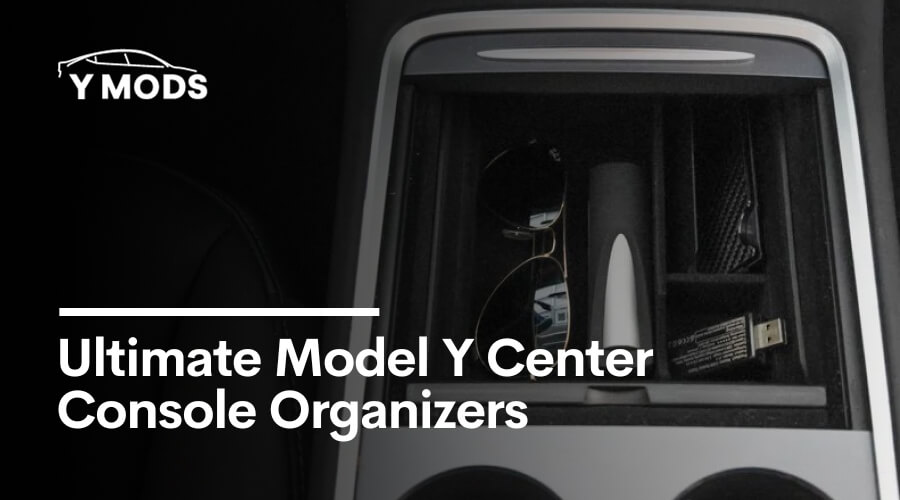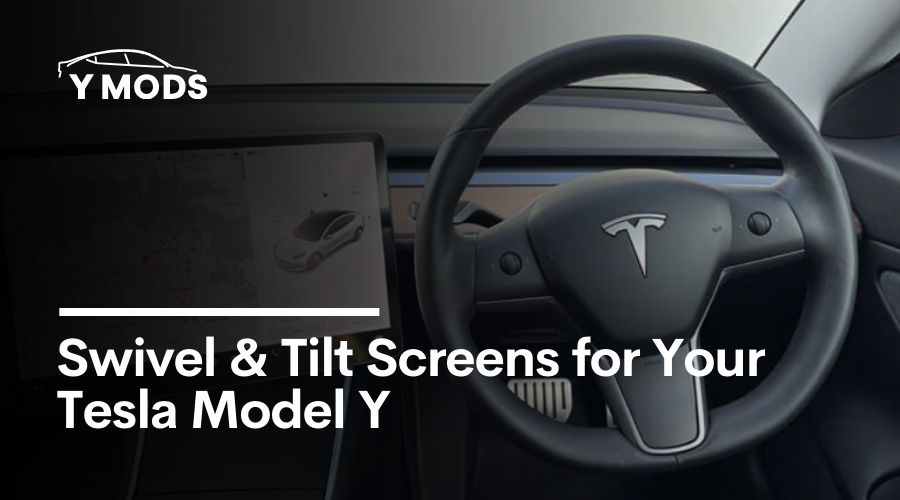The Most Popular EV Electricity Plans For Your Tesla 2023
Thinking of making the switch to an electric vehicle or already own one? Let's plug into the intricacies of electric vehicle tariffs and help you understand which energy provider offers the best package for you.
As electric vehicle owners, we often find ourselves lost in the rabbit hole of model specifications, range, and price.
But have you considered how much it actually costs to charge your EV?
Sure, we know the switch from petrol to electric is a cost-effective choice, with some estimates suggesting that EV charging might cost only a quarter to a third of what you’d spend on petrol.
But, with electricity bills rising across the country from 1 July 2023, it’s worthwhile comparing different energy retailers to find the best deal for you and your EV.
With the rising costs of electricity, it’s now more important than ever to find an EV electricity retailer that gives you the most bang for your buck.
We’ve done some digging and found some of the most popular EV electricity plans amongst Tesla owners in Australia.
The Most Popular EV-Specific Electricity Plans
| Energy Provider | Price Per Year on Avg (VIC) | Special Features | Contract Term | Coverage |
| AGL Electric Vehicle Plan | $1,293 | Up to $120 in bill credits, Carbon offset option | No lock-in contracts | NSW, QLD, SA, VIC |
| Red Energy EV Saver Plan | $1,549 | Free electricity usage on weekends | No contract term | NSW, VIC, QLD, SA, ACT |
| OVO Energy The EV Plan | $1,367 | Cheaper rate for midnight to 6am charging | No specified term | NSW, QLD, VIC, SA |
| Simply Energy “Simply Electric” Energy Plan | $1,356 | $200 credit bonus, Super off-peak discount | No lock-in contracts | VIC |
| Powershop Super Off-Peak Tariff | N/A | Reduced rate for midnight to 4am charging | No specified term | VIC, NSW, QLD, SA |
AGL Electric Vehicle Plan
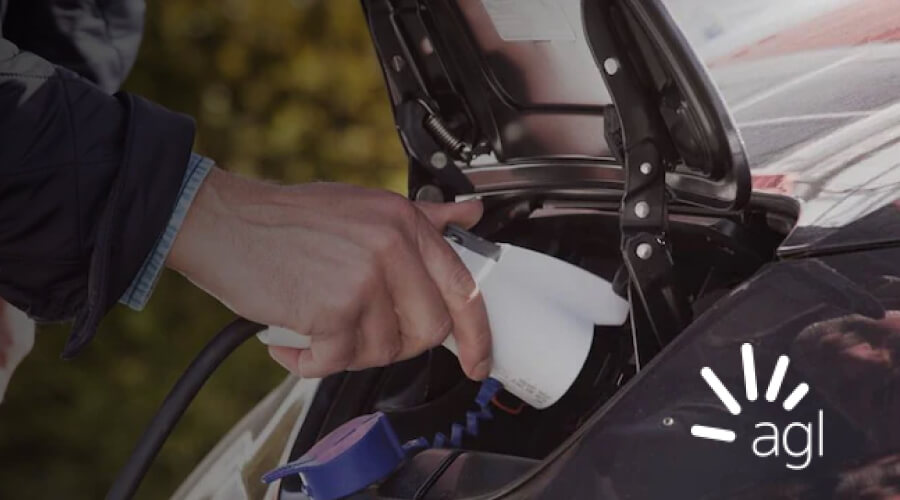
AGL’s Electric Vehicle plan is an easy fit into your existing household utilities. It operates just like any other power plan, but with the bonus of receiving bill credits specifically for your electric vehicle charging. These bill credits can amount to $120 during a 12-month period, credited in $30 instalments every quarter. This extra financial buffer can help reduce the overall charging costs of your EV.
Moreover, AGL goes the extra mile for the environment. With an additional $1 a week, you can choose to carbon offset your household emissions. AGL’s approach caters not only to your EV charging needs but also to those who want to minimise their carbon footprint. The flexibility of a variable rate plan, no lock-in contracts, and the availability of monthly billing options adds to the overall appeal.
Red Energy EV Saver Plan
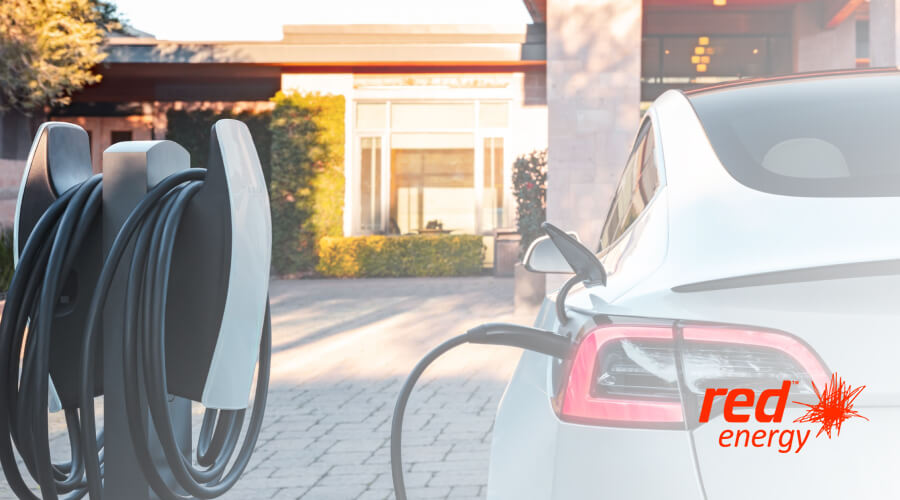
If you’re the type who loves to utilise the weekend for long scenic drives or city cruising, Red Energy’s ‘Red EV Saver’ plan is custom-built for you. Offering free electricity usage charges between 12pm and 2pm every Saturday and Sunday, it’s designed to accommodate weekend charging habits at no extra costs
Plus, Red Energy partners with Snowy Hydro Limited to fulfil their ‘renewable matching promise’. This means for every unit of electricity you purchase, Snowy Hydro Limited generates an equivalent amount of electricity from a renewable source. In essence, with each charge of your EV, you’re contributing to a greener grid.
OVO Energy’s EV Plan

OVO Energy’s ‘The EV Plan’ provides a discounted electricity rate for the late-night chargers, offering a cheaper rate between midnight and 6am. This discounted late-night charging plan is perfect for EV owners who prefer to charge their vehicles overnight, avoiding the peak electricity usage periods.
While it requires owners to have a smart metre, it allows you to remain on a single rate tariff on certain distribution networks, offering convenience without having to change your existing energy structure drastically.
Simply Energy’s “Simply Electric Vehicle” Energy Plan
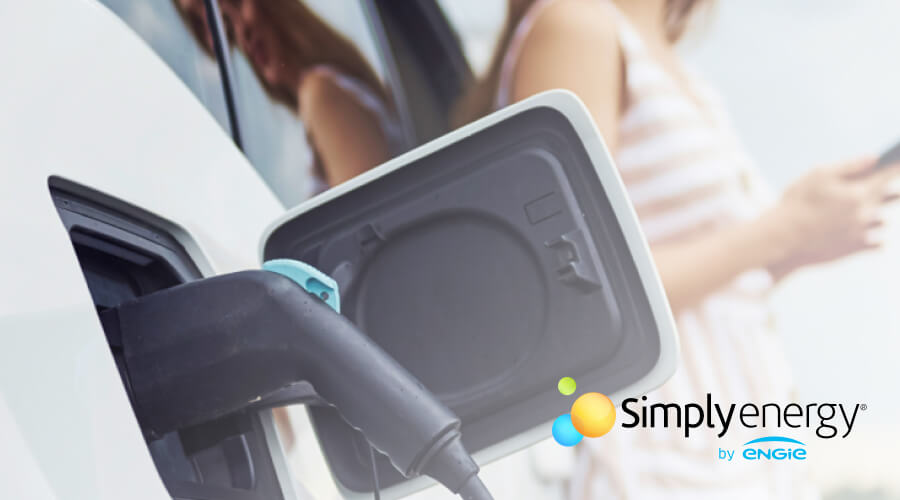
Simply Energy’s “Simply Electric Vehicle” Energy Plan turns the spotlight onto EV owners in Victoria, offering a super off-peak discount of 6c/kWh for charging between 12am and 6am. A night-time charging schedule can therefore translate into substantial savings on your power bill.
What’s more, Simply Energy welcomes new customers to their plan with a $200 credit bonus. All that’s required is an electric car and a smart metre, either already installed or with a willingness to install one
Powershop’s Super Off-Peak Tariff
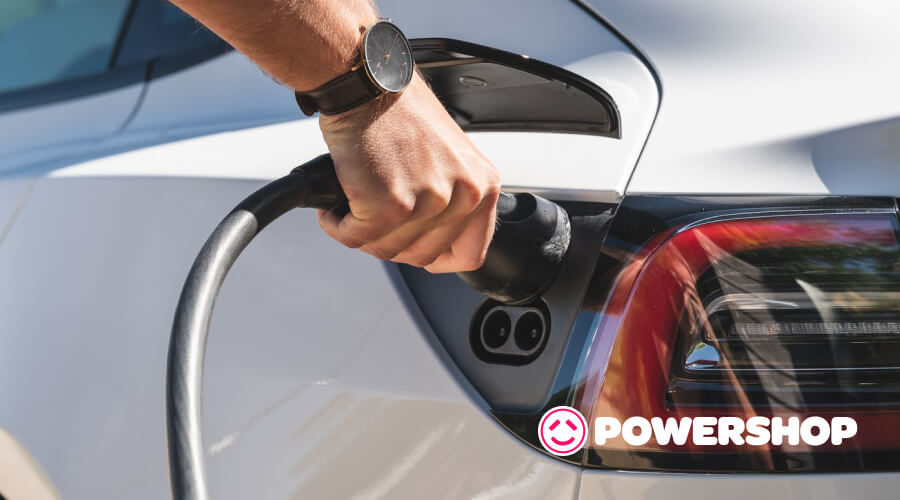
Powershop’s super off-peak tariff caters to those EV owners who favour charging their cars during the wee hours. This tariff provides a significantly reduced usage rate between midnight and 4am on weekdays, perfect for those who follow a routine of overnight charging.
To be eligible, customers must own a smart metre and transition to a time-of-use tariff, where usage charges vary depending on when power is consumed. On top of this, Powershop’s tariff is available through their 100% Carbon Neutral – Electric Vehicle plan, further promoting greener energy use.
EV Electricity Plans Vs Regular Electricity Plans – What’s the Difference?
So, why join an EV-specific electricity plan over regular electricity plans? Well, there are a few reasons:
- Time of Use Rates: EV electricity plans often include rates that change depending on the time of day. It’s usually cheaper during off-peak hours (think nighttime and early morning). This is designed to motivate you to charge your EV when the overall demand for electricity is low.
- Special Discounts: Who doesn’t like a bargain? With EV plans, you may get specific discounts or rebates. Some providers offer lower rates per kilowatt-hour (kWh), cashback on home charging equipment, or even free charging times.
- Green Energy Options: Many EV owners care about the environment. So, some EV plans come with more options for renewable energy like wind or solar power.
- Demand Response Programs: This is an interesting one. You give the power company permission to control when your EV charges, helping them manage the grid’s demand. And for letting them do that, you might get additional discounts.
- Integrated Services: EV plans can come with cool add-ons like smart charging stations, usage alerts, and partnerships with EV manufacturers.
In comparison, standard electricity plans don’t usually include these EV-specific features. They tend to offer a straightforward per-kWh rate and general discounts that aren’t specifically tailored for EV owners.
So, Are EV Only Plans Better?
Well, only you can decide what works for you, but we think that given your Tesla Y can be programmed when to charge, searching for an EV-plan with lower off-peak rates is certainly worth it.
Pro tip: It’s worth noting EV plans have more expensive daily charges to offset the EV rate, so you might not always be getting the best deal. Always check with the provider and compare costs to find the right deal for you.
Australia’s Electricity Price Hike & How it Affects Your EV Charging
From 1 July 2023, we’ll see electricity prices climbing between 20 to 25 per cent in New South Wales, south-east Queensland, South Australia, and Victoria.
What does this mean? It means charging your EV is about to get pricier.
Sure, a good chunk of EV owners are getting their power boost from solar or other renewables. But if you’re relying on the good ol’ electricity grid (which is still mostly powered by coal), costs are going to go up.
For example, to fully charge a 60kWh-equipped Tesla Model 3 RWD – with a max driving range of 491km – you’ll see your bill jump from $24.11 to almost $30.
What About EV Charging Stations?
As of now, Australia’s big electric-vehicle charging providers are keeping quiet on whether they’ll be tweaking their prices in response to the electricity cost increases.
Just keep in mind, this comes hot on the heels of recent price bump-ups by Evie, Ampol, and Chargefox at some of their EV charging sites.
Charging Cost Variations
Depending on your charger’s capacity, you’ll usually be shelling out between 45 and 69 cents per kWh.
With a 20 per cent hike in play, we could be looking at costs rising to between 54 and 83 cents per kWh.
Where to Find Free EV Charging
It’s not all bad news.
There are still opportunities to recharge your EV for nothing.
NRMA in NSW, for instance, is still letting you use its facilities for free. Plus, Jolt and Tesla also offer free charges in certain situations.
You can use this website www.plugshare.com/map/free-ev-stations to find free EV charging stations in Australia and all over the world.
Charging Costs for Tesla Owners
If you’re a Tesla owner, you’re typically paying between 58 and 70 cents per kWh, with a whopping 250kW on tap in the best-case scenarios.
For those driving non-Tesla EVs, using a Tesla Supercharger is a bit steeper. They’re charging as much as 79 cents per kWh for its services, although that drops to 66 cents per kWh if you’re on their $9.99/month subscription.
If a 25 per cent increase is slapped on, non-Tesla folks might be looking at nearly a dollar per kWh to recharge at a Tesla spot.
At the End of the Day, Electricity is Still a Third Cheaper than Petrol
Despite the 25 per cent hike in electricity prices, the $30 for a full EV recharge is still looking pretty good, staying about a third cheaper than filling up a regular car with petrol for the same distance.
Frequently Asked Questions
Do All Providers Have a Dedicated EV Plan?
Is Switching to an EV-specific Plan Worth It?
How does the solar feed-in tariff work with an EV electricity plan?
Can plug-in hybrid owners benefit from EV electricity plans?
RELATED POST

